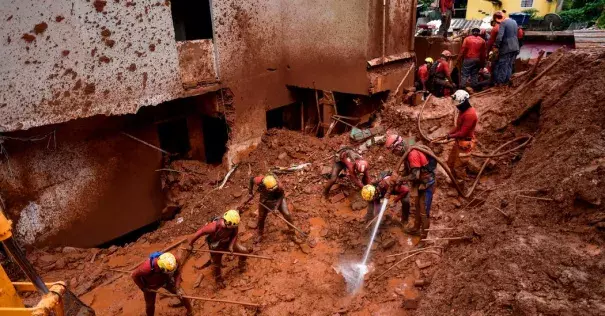Powerful Storm Kills 47 in Brazil

Signals Summary: Climate change is making extreme rainfall more common because warmer oceans means there is more water to fuel storms and warmer air can hold more moisture. These extreme rainfall events have led to an increase in the risk of flooding and landslides.
Article Excerpt: Heavy rains have swept over southeastern Brazil, leaving at least 47 people dead and four missing and forcing over 18,000 people from their homes.
Several cities and towns suffered landslides and floods as rainwater washed over the state of Minas Gerais, overflowing rivers, threatening to burst mining dams and leaving rescue workers scrambling to respond to several emergencies at once.
...
The storms began just as residents of Brumadinho, a town in the same state, gathered for the first anniversary of a dam break that left up to 270 dead. The fire department, which scrambled to help victims of the storm, is still looking for 11 people who went missing and are presumed dead after the dam burst, releasing an avalanche of mud.
A community activist in Brumadinho, Fernanda Perdigão de Oliveira, said she felt as if last year’s tragedy was happening all over again.
...
Col. Sérgio José Ferreira, the commander of Belo Horizonte’s rescue operation, said that on that Friday, the fire department had to deal with seven different landslide events at the same time — two of them involving people who were still alive.
“While we are working to rescue people, we know that the longer people are missing, the smaller the chance we have of finding them,” he said. “We had never seen rains like these.”
...
Heavy rains had already cost nine lives in the neighboring state of Espírito Santo ten days earlier, and forced more than 10,000 from their homes, according to reports in the local media.
José Carlos Carvalho, a former environment minister, said he also saw signs in the tragedy that Brazil might be starting to suffer the consequences of climate change.
“The first signs of climate change are extreme events,” he said. “There is a transformation of our climate pattern.”


